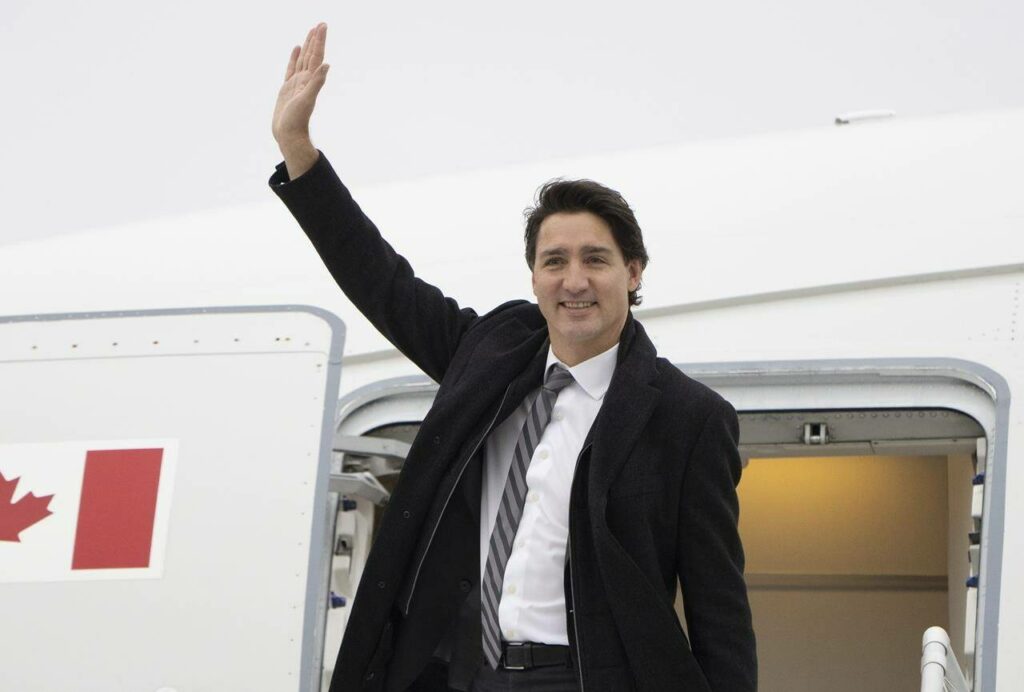As the real impact of climate policy is felt in the real world, lots of people are objecting that it’s hurting more than we were promised. A lot more. And politicians who insisted their schemes would make us all better off are now saying they need to hit pause because they’re making too many people worse off. Even Canada’s Prime Minister Justin Trudeau chose the one-year anniversary of his MPs rejecting a Conservative motion to remove the “carbon tax” on home heating oil … to announce that he was suspending it for three years, at least in Atlantic Canada. See, it’s an essential tool for saving the world from an urgent crisis but then again I see those sinking poll numbers down east and, well, a leader has to set priorities. As Saskatchewan premier Scott Moe chortled: “After years of telling us that most households are getting more money back from the carbon tax than they pay, Trudeau today announced a three year pause of his carbon tax on home heating oil to make life more affordable.” Gotcha.
Of course Trudeau could have admitted that making fuel more expensive on purpose would raise the cost of living, and asked us to trust him that it was worth it down the road. Instead he fibbed, and was caught and now looks silly and unreliable.
It’s also noteworthy that Trudeau said in announcing this electorally devious temporary backtrack that “We are nothing if not a government that listens to people, that is focused on our goals and is willing to adjust as necessary.” And in fact it is a feature not a bug of democracy that politicians must contort themselves to accommodate to public opinion rather than running rough-shod over it as tyrants may. Even if it is not always an edifying spectacle.
Over in Britain, the usual suspects are heckling Prime Minister Rishi Sunak for failing to cough up some £30 billion a year on Net Zero projects, and somehow convince private firms already reeling from high energy costs and failed alternative energy unicorns to up their spending by £10 billion a year or so. But he doesn’t seem impressed, preferring to heed ordinary people’s vociferous complaints (and admittedly his Conservative party is on the political ropes for all kinds of reasons and in no position or mood to make enemies among voters). And as a nagging news story concedes, the policies weren’t working anyway:
“UK emissions are supposed to fall by 68 per cent compared with 1990 levels by the end of the decade, but the CCC [Climate Change Committee] said there remains a “substantial policy gap” in achieving this.”
As in the whole thing was all pain for no gain anyway. Exactly as we weren’t promised.
Deftly missing the point, the Guardian ran a piece on how “Families are eating less healthily and turning to ready meals and processed foods due to the cost of living crisis, a study has found.”
It was full of gory details like that:
“More than two-thirds of people (69%) said they considered themselves to be healthy eaters but 28% said they were eating less nutritious food because it is too expensive, according to the BBC Good Food Nation survey.”
And indeed, who would tell a pollster no, I just gobble garbage, it’s probably why I’m fat? (On the other hand, quite a few said they were producing fewer leftovers “to reduce waste to help the planet”, a claim one ought not to take entirely at face value.) But here’s the thing.
The “cost of living crisis” is, in large part, an energy bill crisis. So what did the article say about that problem and its source? Why, nothing at all. The closest it came was a delicate reference to “research findings that many people are finding it more difficult to eat healthily as millions struggle with increased food prices and other high household bills.” Other high household bills. Any in particular?
For a more realistic take, a study from a think-tank called Civitas calculated that the roughly £6,000 cost to the average family of Britain actually reaching Net Zero would, if left in their hands, “enable every family in the U.K. to have free food and £2,800 spending money every year until 2050.” Which for people struggling to eat is not a petty consideration.
In Britain the Tories are bending, in significant measure from desperation. And politicians elsewhere who are less receptive to public opinion, or more committed to climate zealotry, are likely to be replaced by others more reasonable or even slippery. Reuters even admitted, grumpily, that:
“Europe faces growing pushback against policies to address climate change and protect the environment, causing its green agenda to start to fray. Here are some countries where the ‘greenlash’ is greatest”.
And it listed Britain, Germany, Italy, the Netherlands and Poland, which is quite a significant list.
On the other side of the world, in New Zealand, where left-wing darling Jacinda Ardern crashed and burned over a whole range of woke policies, farmers are now pushing back hard against policies that would decimate their herds without changing the weather.
Meanwhile in Germany, the BBC concedes with ill grace, voters are fed up with failed green policies and already started replacing their architects:
“After key regional elections on Sunday in Germany conservatives and right-wing populists are celebrating. But the results are a blow for all three parties in Chancellor Olaf Scholz’s left-wing-led national coalition. The ramifications will be felt across Germany…. in regional elections in two of Germany’s largest and wealthiest states, Bavaria and Hesse… conservative and right-wing populist parties used the election campaign to bash Olaf Scholz’s national government over migration and energy policy. It paid off.”
Boo! Bashing. Backlash. But still, it concedes that people are fed up.


